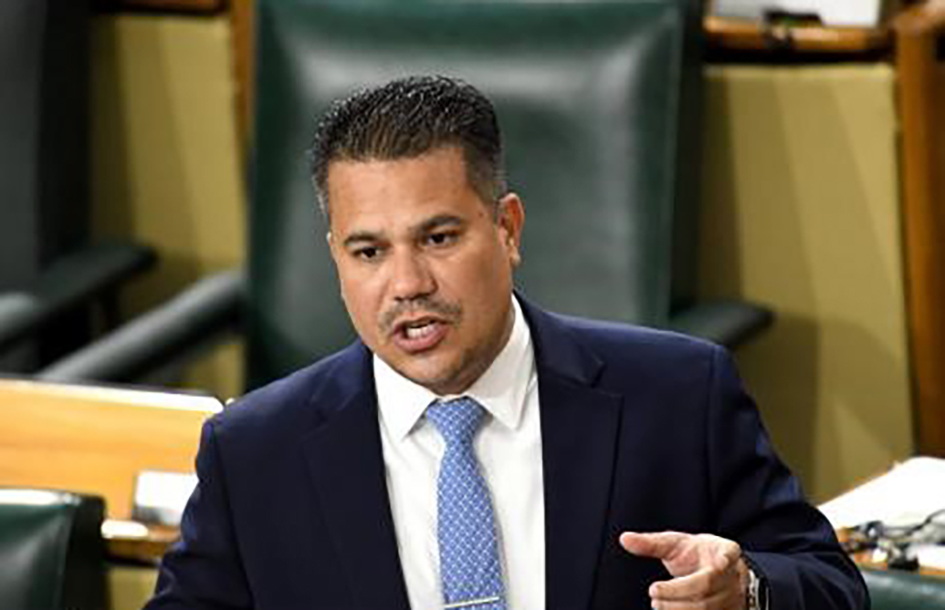(Jamaica Gleaner) Acknowledging that Jamaica has a plastic problem, Senator Matthew Samuda says a string of policies, including a national one on the environmentally sound management of single-use plastic products, is to be implemented this calendar year.
Samuda, who was making his contribution to the State of the Nation debate in the Senate on Friday, said currently, Jamaica collects more than 30 per cent of the plastic bottles produced locally.
He said this is an increase from the eight per cent recorded three years ago.
“But, we’re ambitious in our environmental targets. We’re in a race against time to ensure we improve our waste management,” the minister without portfolio in the Ministry of Economic Growth and Job Creation said.
He has responsibility for water, environment, climate-change, and the blue and green economies.
He told the Senate that the work continues with stakeholders to determine the appropriate legislation necessary to achieve further improve waste management.
“Our goal, and for the country to understand, is not less than 70 per cent of all plastic being produced monthly to be collected and recycled for the benefit of Jamaica,” said Samuda.
He said Jamaica is actively participating in the negotiations for a legally binding instrument on plastic pollution, as part of the Paris Agreement related to pollution and specifically plastic.
The agreement is an international treaty on climate-change.
“We don’t know where those negations will end up; we have some insights as to where they are. But it is our intention in Jamaica to make sure that whenever that is agreed, we are ahead of targets and able to sign and ratify almost immediately once that is agreed,” Samuda said.
He said the efforts and the fight to halt biodiversity loss and tame pollution will be underpinned this year by “significant” increases in fines both for breaches of the Natural Resources Conservation Authority Act and the Wildlife Protection Act.
Prime Minister Andrew Holness is expected to address this in his budget presentation later this year, Samuda said.
In December, Holness announced that there are plans to mandate plastic separation and recycling by all ministries, departments, agencies and statutory bodies as part of the management of solid waste.
He said that legislation would be crafted to accompany the policy.
“It is important that the work being done here is supported by the public effort of being responsible in the management and disposal of waste. The government can aid in this, and we will aid in this. We will be making a special budgetary allocation for a public education campaign to support the proper disposal of waste, in particular plastics, and that will be very much a line item in the next budget,” Holness said.
It followed statements from Audley Gordon, executive director of the National Solid Waste Management Authority (NSWMA), that there has been a 22-year delay in drafting “critical” regulations to support the NSWMA Act, which has resulted in a failure in policy to mandate garbage separation.
Plastic accounts for approximately 16.8 per cent of Jamaica’s waste, according to a waste characterisation study produced by the NSWMA, while an estimated 500,666.93 kilograms is generated daily.
Annually, 182,743.43 tonnes of plastic waste is generated.
Still, Samuda said climate-change is the greatest threat to Jamaica’s pursuit of its ambitions.
He said although Jamaica contributes very little to the problem, “it is indeed ours to confront”.
He said the government has, through the Green Climate Fund and the Planning Institute of Jamaica, developed a national adaptation plan.
“We’ve also targetted development of climate-change legislation and accompanying regulations by 2026. This will allow for adequate time for consultation and indeed the completion of the full policy framework to make sure that there is policy coherence with the legislation,” Samuda said.










